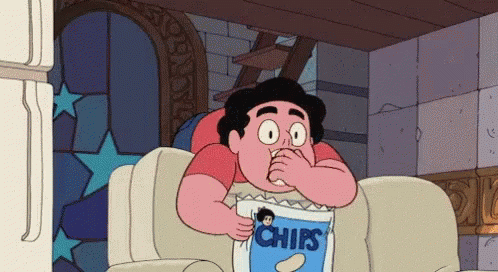Dropping a Beat on My Depression Fail Days
Dancing like nobody’s watching is more than a cutesy saying on a dance studio’s wall. Read on to learn how it helped me fight off depression.

I’ve been down in the dumps lately.
My healthy breakfast of a protein shake with a side order of an entire bag of Tostitos Salsa Verde chips was the first clue that things had gone off the rails. And a few days later that package of Haribo Sour Gold-Bears chased down with a zero calorie, Stevia sweetened soda? Yeah, I’m definitely going to see results with that regimen, right⸮
Yet as Fall became more like Winter, I couldn’t go out for a walk or a ride on my longboard. At the same time, family stress spiked just when I could have used exercise. I found myself drifting into a depression routine: comfort eating and gaining weight again. Truthfully, I made a lot of progress over the summer. I lost seventeen pounds and four and a half inches off my waist as I converted chub to muscle. Yet there I was, deep into Winter Depression with a face full of comfort carbs.
Many people experience Seasonal Affective Disorder (Winter Depression) at this time of year. The days shorten as the earth makes it elliptical dance around the sun, and that lack of light causes a gloom to settle over some people. It’s more than merely a disappointment that there is no more fun in the sun. Certainly, I can relate to that disappointment since wet, cold nights curtail my exercise regimen, but depression isn’t disappointment. It’s a pervasive sadness that clings to the victim. Depression defies reason and builds up a dark momentum that draws the person increasingly inward—away from the people who can help.
At this time of the year, Daylight Savings Time is supposed to help with the lack of light, but it always hits me like a KO punch in the kisser. This is why I found myself spiraling downward, and why I suddenly realized that I had forgotten to use my coping strategies. If you already suffer from depression, Winter Depression is like giving your depression a depression, yet after so many seasons where I successfully fought it off, I was caught unaware.
When you combine Major Depressive Disorder (MDD) with Persistent Depressive Disorder (PDD), it is often referred to as Double Depression (DD). For some people, Winter Depression is the only time they experience depression. For me, however, Winter Depression fuels my PDD on top of my MDD, giving me DD. And that’s enough of the alphabet for today.
Usually, I prepare ahead every year for Winter Depression with coping strategies like the following:
- Remind myself that I’ll be seeing greater symptoms of depression soon.
- Install Daylight spectrum lightbulbs in my working area.
- Shift my exercise regimen from outdoors to indoors.
- Make sure I’m getting a good night’s sleep.
This year I didn’t do any of those. I held onto longboarding in the hopes mild days were ahead while mounting family drama increased stress, decreased sleep, and ran down my health. The day I realized I had slipped into depression was the deepest of depressed days. I was on the couch, bored with TV, bored with reading, and needing to go to the bathroom. I couldn’t summon the energy to get off the couch. I was overwhelmed by waves of intense sadness. I sat there battered by biological urges, both mental and physical, but clearly the depression was the stronger of the two.
And I thought, “This is stupid.”
So I forced myself off the couch and took care of business. Then I did something silly—sillier than blogging about being too sad to pee. I turned up the music, made sure nobody could see me, then forced myself to dance.
I am not sure if I can express how difficult this was to do. Waves of crushing sadness don’t exactly sweep one out onto the dance floor. Moving was hard at first—even foreign—but the more I let myself get into the music, the more I moved, and the less sad I felt. I danced for forty-five minutes as the pulsing beat of vocal trance drove away the depression.
As you’ve probably heard before, exercise releases endorphins in the mind. Exercise relieves stress. It burns calories. So dancing for a length of time had a positive effect on me physically and mentally—something I was counting on. I went to bed exhausted, but slept well, which also helped. For the next few days, I implemented all my coping strategies and reversed the trend. I ended November with an uptick in productivity and mental health. My Winter Depression had been vanquished again.
I have Double Depression, but I manage it. I can’t use meds, so keeping DD at bay with coping strategies is a part of my daily life. Dancing didn’t magically cure my depression. Deciding to do something about my depression made the difference. Taking action. Following through. Being consistent afterwards. We need to take responsibility for our own mental health and do the work to improve. Even if you utilize anti-depressants to manage your depression, you can still upgrade your quality of life by analyzing your triggers and compensating for them. Depression doesn’t have to own you.
I’m just glad that this happened before egg nog was on the shelves. My waistline would have been doomed.
If you like what I write about overcoming depression, you should read my book on overcoming suicide.